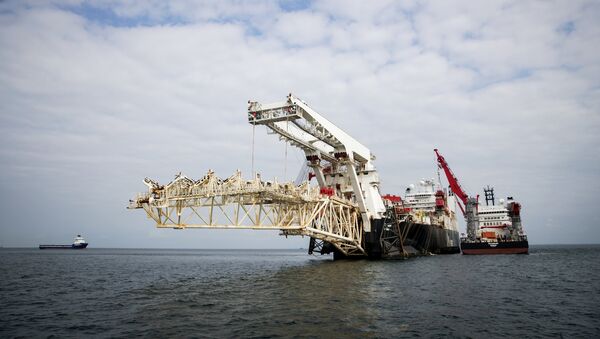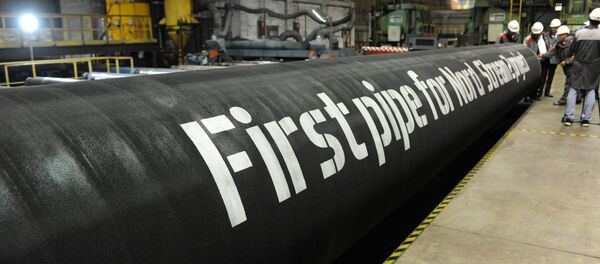On August 10, the operator of the Nord Stream 2 gas pipeline construction project was forced to apply for an alternative pipeline route in Denmark, Sputnik contributor Dmitry Lekukh wrote.
The application and environmental impact assessment report to Denmark's Energy Agency requested permission to build through the country's 200 nautical mile exclusive economic zone northwest of Bornholm, thus bypassing Danish territorial waters (i.e. waters 12 nautical miles off the country's coast).
Construction Permits
For Nord Stream and Nord Stream 2, permits from Russia, Germany and Finland were crucially important because there is no way either pipeline could possibly circumvent their territorial waters.
Permits from Sweden and Denmark are important, but not critical: in the case of Sweden, the pipes could be laid differently, although with some cost markups, and in the case with Denmark the same could be done without any additional cost.
Realizing the legal and technological impossibility of countering the project and hating to alienate the project’s main beneficiaries, Germany and Austria, the Swedes granted the requited permission.
The Danish authorities dug in their heels even though they officially recognized the impossibility of derailing the project as a whole.
And now the Danish Energy Agency says it will hold a public hearing on the environmental assessment of the alternative route for Nord Stream 2 on Bornholm Island slated for November 14.
By the way, the new route runs away from the country’s territorial waters, but still inside its exclusive economic zone to the north-west of Bornholm.
Yetl, from the point of view of international maritime law, Denmark cannot block it, except only under the pretext of some “ecological concerns.”
This won’t do either, since the country’s Energy Department has already published an environmental impact assessment report for the Danish section of the gas pipeline, which is based on detailed environmental studies of the pipeline’s route. There is nothing to hold on to, no violations whatsoever.
And again, laying pipelines through a country’s "exclusive economic zone" unlike through "territorial waters," is governed by international, not national, laws, and from this point of view Nord Stream 2 has nothing to worry about.
US Opposition
The Nord Stream 2 is facing fierce opposition from the United States, which has ambitious plans to export its own LNG to Europe. Ukraine and Poland are equally against it. Well, by rejecting “aggressive” Russian gas, Poland may soon find itself asking for additional money from Germany to buy “democratic” LNG from the United States.
READ MORE: Nord Stream 2 to Be Built Even Under Potential US Sanctions — Russian Minister
Meanwhile, the laying of the Nord Stream 2 gas pipeline, which began in July, is proceeding on schedule.
As for the "Danish section" it is not very long and will be the last to build.
Nord Stream 2, a joint project of Russia's Gazprom with France's Engie, Austria's OMV AG, UK-Dutch Royal Dutch Shell, and Germany's Uniper and Wintershall, aims to deliver 55 billion cubic meters of Russian natural gas a year to the European Union across the Baltic Sea to Germany.





